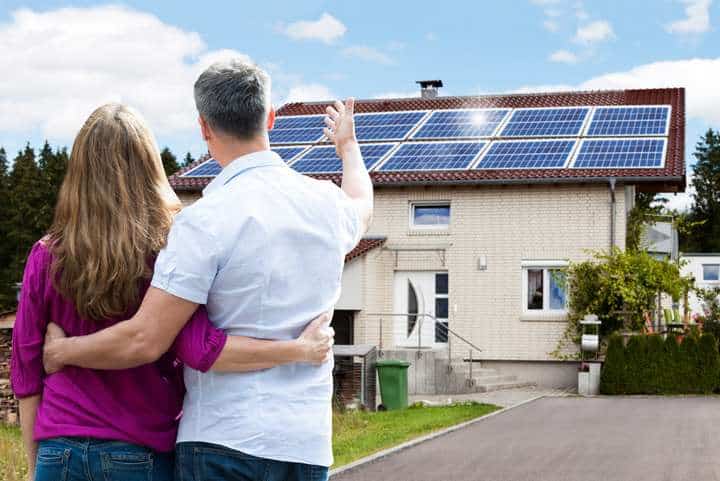The United States is the world’s second-largest emitter of greenhouse gases worldwide, and electrical generation accounts for 25% of national emissions every year.

So, if you’re committed to making some changes to environmentally-friendly practices, renewable energy sources are a good place to start.
Solar panels are one of the most readily available sustainable energy options for homeowners. Yet, they don’t suit everyone’s circumstances.
Here’s how to know if your home’s a good fit for solar.
Your Roof’s Characteristics
Unless you opt for a ground installation, your roof has a major role to play in whether you can benefit from solar panels or not.
Solar panels can last for decades, so if you’re due for a roof replacement, you might want to do that first.
You can install solar panels on almost any kind of roof, but it’s difficult to install them on slate and wood, as these materials are brittle. You’ll need a specialized installer to place solar panels on these kinds of roofs.
A large, wide, open roof that’s free of chimneys, dormers, and vents works best for solar installation. Ideally, the roof should have an angle of between 30 and 40 degrees too.
If you live next to tall buildings and trees that throw shade on your roof all day, your solar panels can’t perform at their best.
Does Your Area Get Enough Sunlight?
Even the best solar panels installed on the perfect roof can’t do their job when skies are gray all day long. Solar panels work best in direct sunlight, but their output’s reduced by about 10% on extremely cloudy days.
This doesn’t mean you can’t have solar panels in areas with gloomy weather, but you will need more panels to meet your energy needs. Rain, fog, and even hail are not problems for solar panels, but snow can block their access to sunlight.
You’ll need to check your panels are free of snow regularly if you live in an area that experiences heavy snowfalls.
You can look on Google’s Project Sunroof website, enter your address, and find out more about your home’s solar potential.
Will You Save With Solar Panels?
If your energy bill exceeds $300 every quarter, you could save a lot of money thanks to solar energy, even when you take the high cost of solar panel installation into account.
According to blueravensolar.com/texas/, solar panel prices have dropped by 38% in recent years. You could also benefit from generous tax rebates when you install solar panels on your house.
So, it’s important to keep these savings in mind when calculating the true cost of going solar. A reputable local installer can help you crunch the numbers.
Do You Want to Help Reduce Greenhouse Gas Emissions?
The biggest issue you face when deciding on installing solar panels or not is your commitment to the environment. There are ways to cut your energy consumption so that solar works for your circumstances.
Are you interested in investigating more about sustainable energy solutions and how you can use technology to cut costs and lower your carbon footprint? Browse some more of our articles for the latest news and tips.

